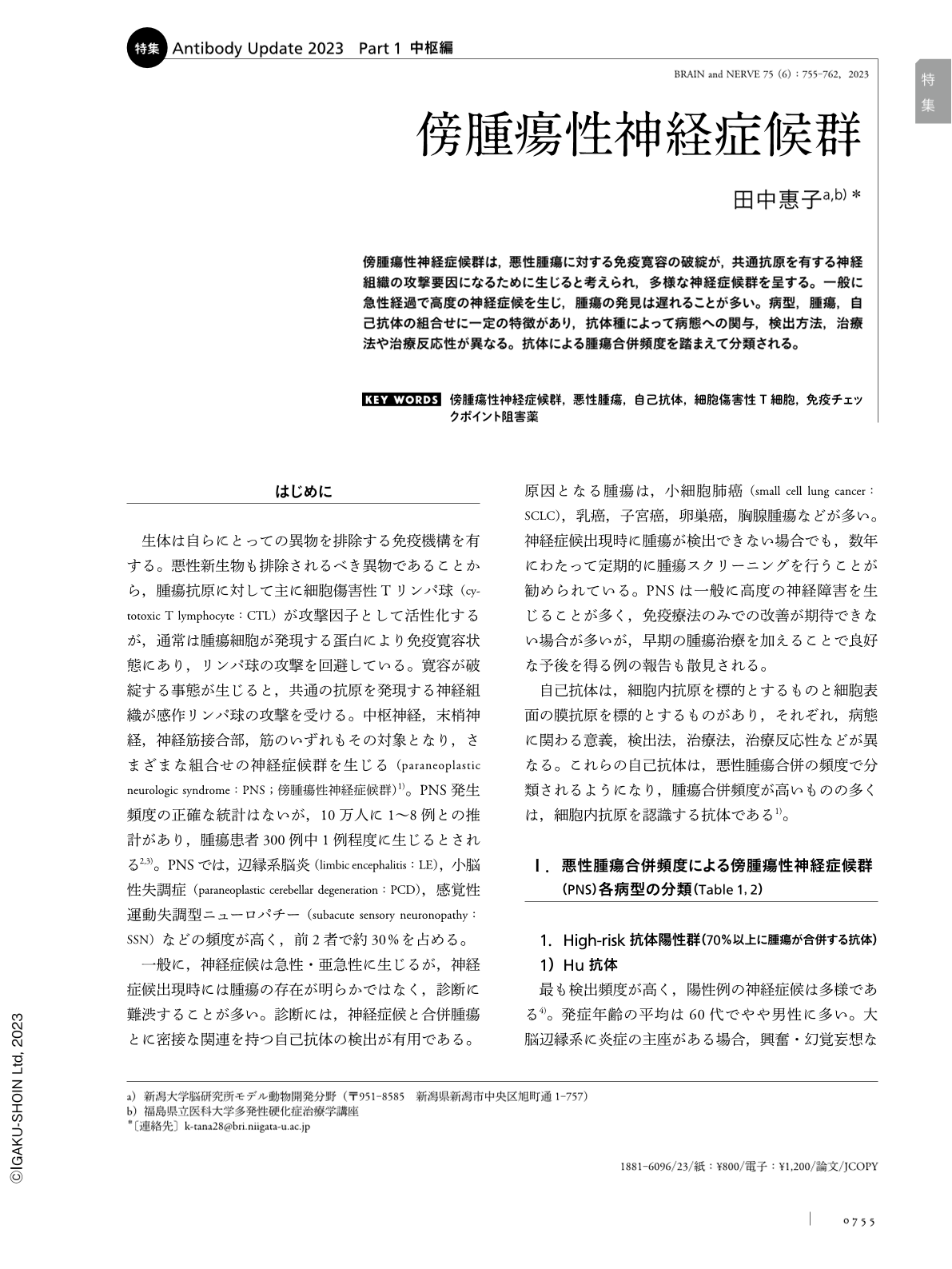Japanese
English
- 有料閲覧
- Abstract 文献概要
- 1ページ目 Look Inside
- 参考文献 Reference
傍腫瘍性神経症候群は,悪性腫瘍に対する免疫寛容の破綻が,共通抗原を有する神経組織の攻撃要因になるために生じると考えられ,多様な神経症候群を呈する。一般に急性経過で高度の神経症候を生じ,腫瘍の発見は遅れることが多い。病型,腫瘍,自己抗体の組合せに一定の特徴があり,抗体種によって病態への関与,検出方法,治療法や治療反応性が異なる。抗体による腫瘍合併頻度を踏まえて分類される。
Abstract
Paraneoplastic neurologic syndromes (PNS) are a group of neurological disorders that are possibly caused by immunological mechanisms triggered by an underlying tumor that involves every part of the nervous system. Autoantibodies were categorized according to the risk of cancer association. Antibodies against intracellular proteins are excellent markers for tumor detection, however, without functional roles in neuronal loss, the direct effector of neuronal damage is thought to be cytotoxic T cells. The frequently associated symptoms include limbic encephalitis, cerebellar ataxia and sensory neuronopathy. The associated tumors are mainly small-cell lung cancer, breast/ovarian/uterine cancers, and thymoma. Timely diagnosis, prompt immunotherapy, and treatment of the underlying tumor are essential for managing PNS. However, we need to be cautious about the high frequency of false-positive/negative results of antibodies using commercial antibody tests. This highlight the importance of the careful evaluation of clinical features. Recently, PNS emerged after immune check point inhibitor administration, and this became a subject of attention exploring its pathogenesis. Other basic studies to understand the immunological background of PNS have been progressing.

Copyright © 2023, Igaku-Shoin Ltd. All rights reserved.


